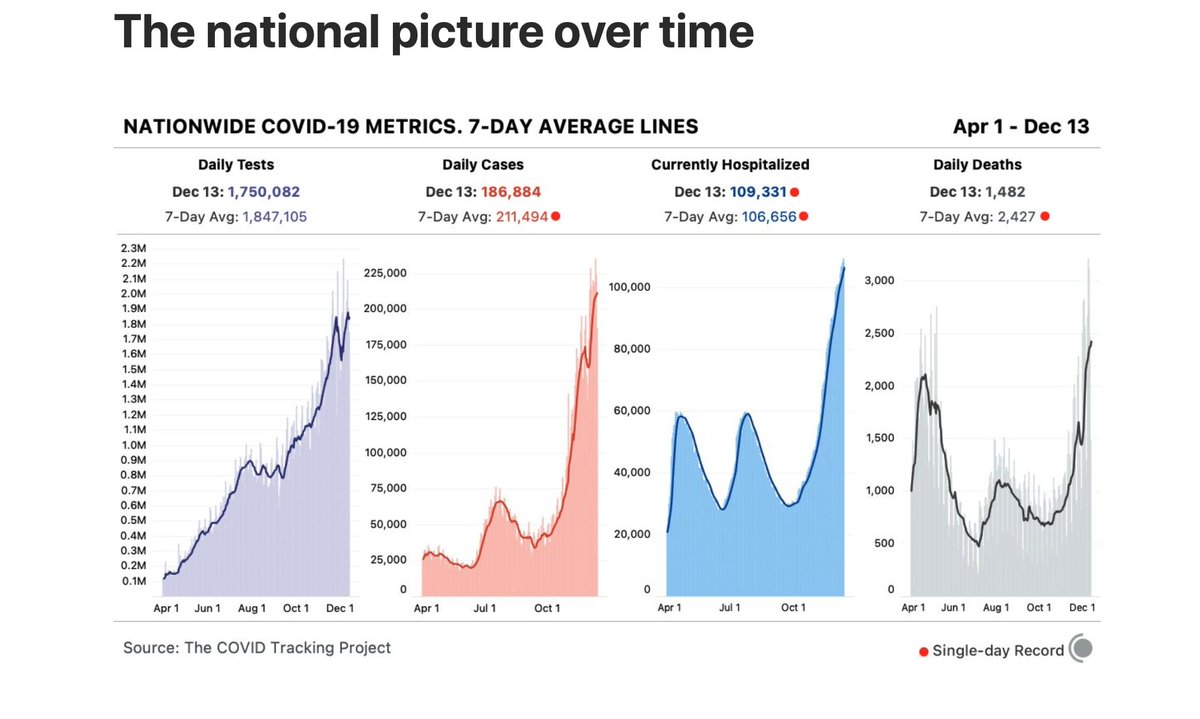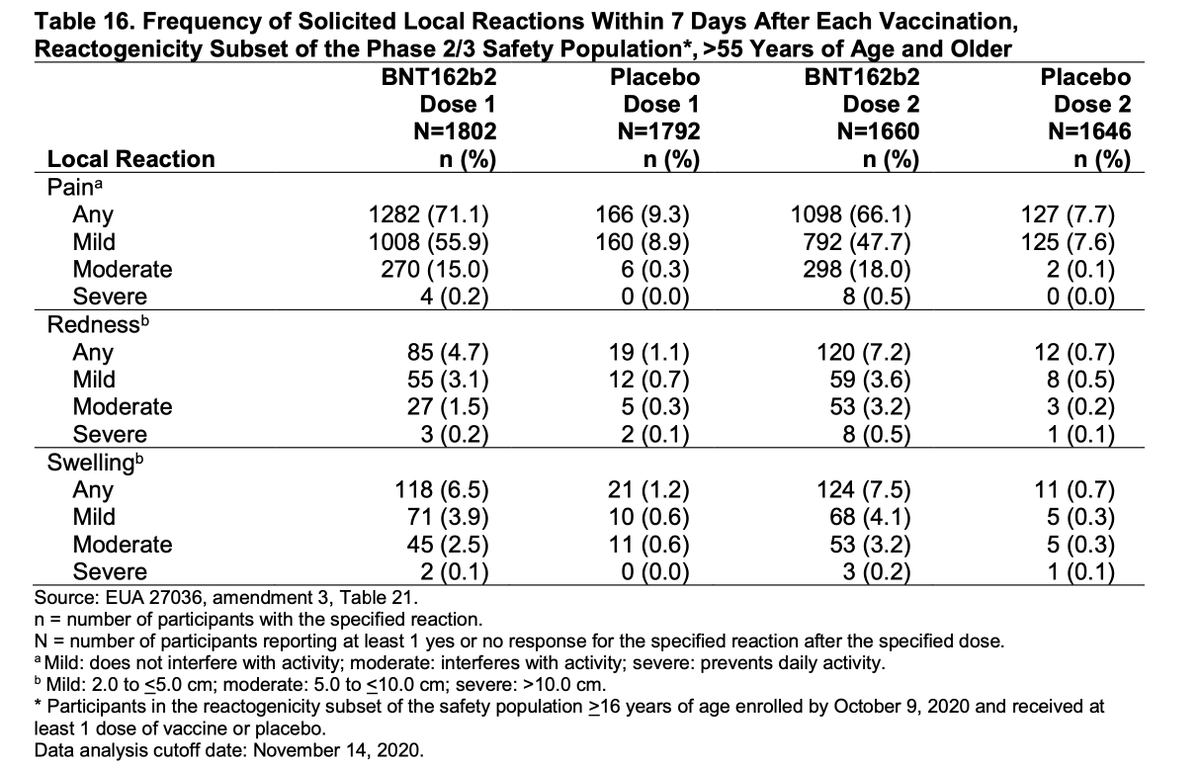
On March 10, 2020, I addressed the question, "Could Covid kill 1 million Americans?"
/thread
/thread
I recalled my first meeting with President Obama @BarackObama. It was in the Roosevelt Room of the White House, just as the H1N1 pandemic was beginning to spread widely. The President asked: “We’re not going to see a million deaths in this country, are we, doctor?”
2/
2/
I replied, with more certainty than I felt, “No, Mr. President, we won’t.” Fortunately, that was correct.
In early March 2020, if asked the same question about the Covid pandemic, I would have had to answer: “I hope not, but that’s a possibility.”
3/
In early March 2020, if asked the same question about the Covid pandemic, I would have had to answer: “I hope not, but that’s a possibility.”
3/
Here's how epidemiologists think about that question. How infectious is the virus (now-famous, formerly obscure Ro) and how deadly (infection fatality ratio - the proportion of people who get it who die)? We summarized that in a table in this article. bit.ly/35s0nwm 4/ 

Worth looking closely at the table. We didn't know infection fatality ratio, but estimated it could be as low as 1 in 1,000 and no higher than 1 in 100. (We wrote of case fatality, but infection fatality is more useful to calculate). We now know that it's about .5 (1 in 200). 5/
That's "moderately severe" tho we now know it's very different in different ages. For kids, it's like a seasonal flu. For the elderly, it's equivalent to a very severe flu – like 1918 pandemic (graph). Now look at the columns. What proportion of the country will get infected? 6/ 

Here's where the answer to the question may need to change – because of new strains such as B.1.1.7. Our March 2020 table stopped at 50% infection. With moderate severity that would be >800,000 deaths in the US (fewer if we improve treatment and reduce the fatality ratio). 7/ 

But what's to say Covid will stop at 50%? We're already at around 25% in US and every day about a million more get people infected. (Diagnosed cases increasingly far below infections.) That's 7 million or 2%/week, 8%/month. And that's BEFORE the variant spreads widely here. 8/
So today I'd have to answer, "Could Covid kill a million Americans?"
"Quite possibly. Especially if B.1.1.7 or another more transmissible strain spreads widely."
That's more Americans than killed in all wars of 20th Century and close to number killed in war since 1776.
9/
"Quite possibly. Especially if B.1.1.7 or another more transmissible strain spreads widely."
That's more Americans than killed in all wars of 20th Century and close to number killed in war since 1776.
9/
Here's how we concluded that essay exactly 10 months ago to the day:
"It’s been said that a week is a long time in politics. With COVID-19, a week is not a long time, it’s an eternity. The sooner we act, the more we can decrease the likelihood of a million deaths in the US." 10/
"It’s been said that a week is a long time in politics. With COVID-19, a week is not a long time, it’s an eternity. The sooner we act, the more we can decrease the likelihood of a million deaths in the US." 10/
We added:
"Clear, consistent communication from credible sources builds public trust and saves lives. When faced with a scenario in which so many Americans could die, there’s no time for politics."
Oh well. Didn't happen. But here are 5 things we can do right now.
11/
"Clear, consistent communication from credible sources builds public trust and saves lives. When faced with a scenario in which so many Americans could die, there’s no time for politics."
Oh well. Didn't happen. But here are 5 things we can do right now.
11/
1. Scale up vaccination, especially nursing home residents and staff and people over age 65. This will greatly reduce deaths, even without changing the epidemic trajectory. Vaccines won't change the shape of overall pandemic curve for months. 12/
2. Scale up effective treatment. Monoclonal antibodies given early in illness likely prevent hospitalization. We need to scale up their use in outpatient settings. Doing so also won't bend curve of the pandemic, but will spare hospitals and likely save lives. 13/
3. Limit time indoors other than with household members. Outdoors is generally ok. The more time you spend indoors with people from outside your household, the more the virus spreads. Limit travel, because when we travel, the virus travels and viral spread accelerates. 14/
4. Mask up. Almost any mask greatly reduces spread from someone with the virus. But to protect ourselves better, we may need N95/KN95 when indoors near others. A more infectious strain requires stronger defenses. Masks all the time when around others not from your household. 15/
5. Test, trace, isolate, quarantine. Antigen tests have limits but widespread testing can reduce number of superspreading events. Anyone feeling ill must isolate. Exposed susceptible people must quarantine. Society must support both groups to do so. Find and stop outbreaks. 16/
We are absolutely getting numb to the numbers. 23,000 dead in the past 8 days. 100,000 per month. 500,000 by March 1 or before.
So much of this was preventable. But we are where we are. 17/
So much of this was preventable. But we are where we are. 17/
Let's double down on protection protocols. Federal, state, city, local governments, health departments, health care providers, civic organizations–everyone– must work together on these 5 measures: vaccinate, treat, limit indoor time, mask, test/follow-up to stop outbreaks. 18/
A pandemic isn't like the weather – able to be described and sometimes predicted but not controlled. All of our actions matter. A lot.
So the right answer, if asked today, to the question, "Could Covid kill a million Americans?" is:
"Only if we let it."
19/end
So the right answer, if asked today, to the question, "Could Covid kill a million Americans?" is:
"Only if we let it."
19/end
• • •
Missing some Tweet in this thread? You can try to
force a refresh





